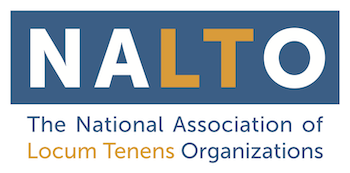Medications can be a critical component to treatment plans. They alleviate pain, minimize symptoms, and combat infection. However, the government has deemed it necessary to regulate these controlled substances in order to prevent illegal distribution or abusive practices. Because medications vary from mostly benign over-the-counter products to powerful narcotics, they have been divided into five Schedule categories. Schedule V drugs contain limited amounts of narcotics or stimulants—cough syrup is an example of a Schedule V controlled substance. The most powerful medications administered in medical settings, such as oxycodone and fentanyl, fall within a Schedule II classification. Schedule I substances typically have no medical applications under federal law.
The U.S. Drug Enforcement Administration (DEA), a division of the U.S. Department of Justice, determines who is qualified to dispense regulated medications. And according to the DEA, as it
applies to practitioners, the term “dispense” means to “deliver a controlled substance to an ultimate user or research subject by, or pursuant to the lawful order of, a practitioner, including the prescribing and administering of a controlled substance.” Physicians, and where legally applicable, mid-level providers must apply for and receive registration from the DEA to legally dispense/prescribe scheduled medications to their patients.
Applying for a DEA registration is a fairly straightforward process. Applicants provide their full names, addresses, Social Security numbers, and phone numbers as well as proof of licensure. In fact, the registration is predicated on the fact that clinicians meet all state licensing requirements for the state where they will be practicing. Also, it’s important to note that a DEA registration doesn’t grant carte blanche authority. Applicants must list the drug schedules they wish to handle, which will be the only controlled substances they’ll be authorized to dispense.
The DEA registration remains valid for three years. Practitioners must apply for renewal in order to retain prescription capabilities.
Multiple Locations, Multiple Registrations
Technically, the DEA mandates providers obtain separate registrations for each principle place of business, i.e., acute care facility, outpatient center, or private practice, if the controlled substances are stored, administered, or dispensed by the practitioner.
Still, regulators concede this stipulation could exert undue burdens on physicians practicing in multiple locations. Therefore, it agreed to an exemption for providers who practice in more than one location within the same state. In this specific set of circumstances, the DEA does not require clinicians to obtain additional registrations.
Multi-state Registration Regulations
The government agency also recognizes not all providers exclusively treat patients in one location or in one state. Locum tenens practitioners seek out opportunities in multiple states, one of the career alternative’s many benefits.
However, this mobility poses a possible conundrum with DEA regulations. Must locum tenens professionals obtain a separate registration for each assignment outside of their home state? That’s
one option. The DEA has outlined the following acceptable approaches for registration compliance while practicing as a locum tenens physician:
- Practitioners apply for a separate DEA registration in each sate where they plan to administer, dispense, or prescribe controlled substances.
- If a locum tenens contract takes place within a hospital/clinic setting, and only in that setting, then physicians may request to use the hospital’s DEA registration. The decision ultimately lies with the hospital if the situation warrants the accommodation.
- There’s also a possibility for practitioners to transfer their existing DEA registration from one state to another. This option requires the doctor submit a request to the DEA’s Registration and Program Support Section. The Administration investigates each modification of registration as if it was a new application, which could take several weeks to process. If granted, the physician will receive a new DEA certificate with the appropriate changes. It should be noted that locum tenens physicians who wish to resume practicing in their home states upon conclusion of temporary assignments may have to modify the registration again.
There are a few other situations that fall outside these parameters. Indian Health Services (IHS), for example, is regulated by the Indian Self-Determination and Education Assistance Act; however, many IHS facilities accept an active DEA registration. But that’s not always the case, so it’s important to confirm the details of the specific contracts. What’s more, some states require practitioners to obtain the state’s controlled substance permit prior to securing a DEA registration.
To verify physicians’ or mid-level practitioners’ DEA registration for credentialing purposes, locum tenens staffing companies can request a copy of their registration certificates, which will include the issue and expiration dates.
You can find more information about the DEA registration process and requirements on the agency’s website: http://www.deadiversion.usdoj.gov/drugreg.
